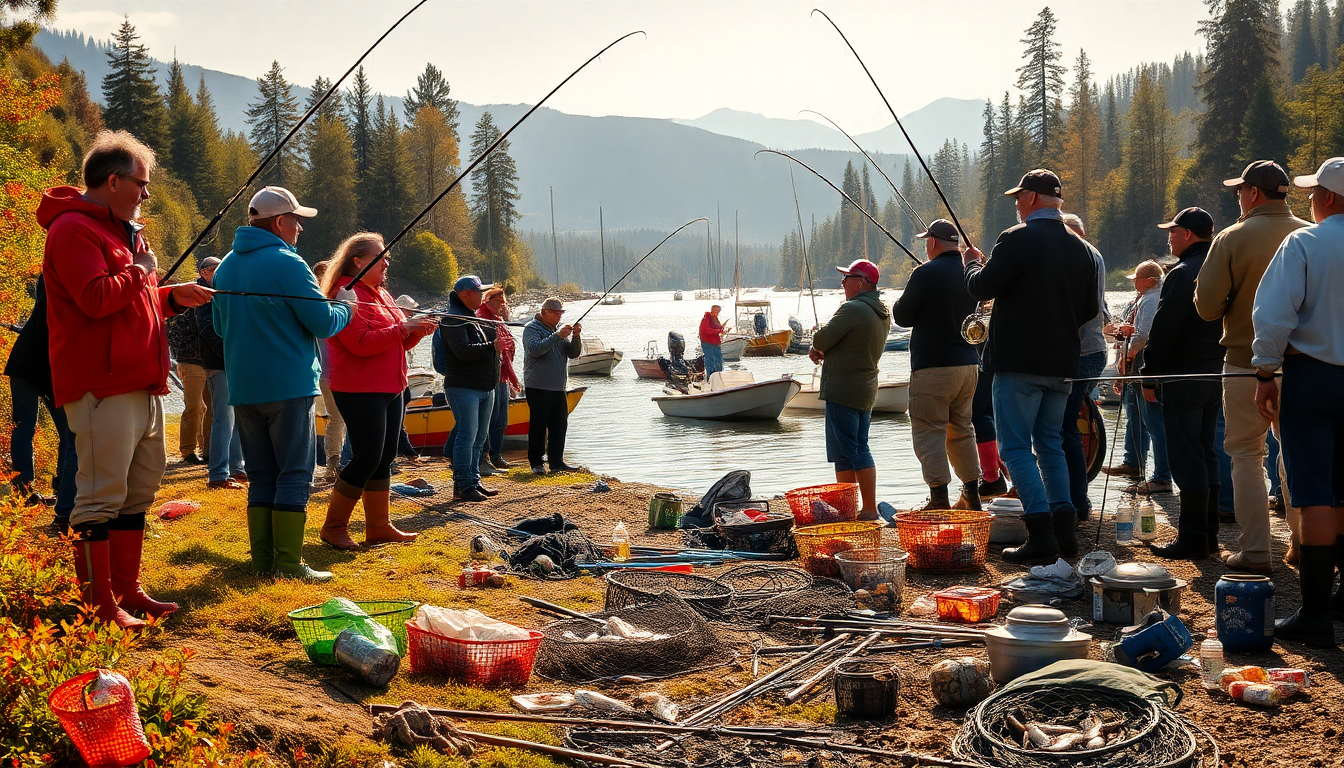Table of Contents
The recent incident on the banks of the Fraser River is a wake-up call for recreational fishing communities everywhere. On Labour Day, what started as an exciting gathering for anglers quickly spiraled into chaos, highlighting just how fragile the balance is between enjoyment and conflict in these shared spaces.
So, what really happened that day, and what does it mean for the fishing community moving forward?
The Incident: A Day of Contrasts
Imagine the scene: hundreds of anglers gathered at the Fraser River, all set to make the most of a rare recreational sockeye fishery.
The air was filled with laughter, as families and friends made plans to cook up their catches together. But in a shocking turn of events, just a day before, a violent altercation erupted among a group of men, leaving at least one person injured.
Videos of the brawl spread like wildfire on social media, raising serious concerns about safety in what should be a peaceful pursuit.
Willie Stroekher, a member of the Pink Salmon Committee, couldn’t hide his disappointment. He pointed out the immense effort that goes into making fisheries accessible to the public, only to see it threatened by violence.
What started as a simple dispute over a fish escalated into a full-blown brawl. Observers, like Larry Ligma, suggested that the cramped conditions along the riverbank might have fueled the tensions, indicating that a lack of personal space can turn frustrations into conflict.
As the dust settled, the mood among anglers turned somber. Nathan Connor emphasized the importance of respect within the fishing community, warning that behavior like this could jeopardize future fishing opportunities. Another angler, Aaron van Beest, expressed his reservations about returning to the river after witnessing the violence, yearning instead for an atmosphere filled with sportsmanship and camaraderie, not conflict.
Community Reactions and Concerns
The fishing community’s reactions reveal a shared dedication to preserving a positive environment for all anglers. Many voiced their worries that incidents like this could tarnish the reputation of recreational fishing and discourage newcomers from getting involved. Remember, the last time the Fraser River was open for recreational sockeye fishing was back in 2022, and many are eagerly awaiting the next opportunity. But if disputes keep arising, we could risk losing these hard-won chances.
Stroekher articulated fears that this incident might have long-lasting consequences, potentially hindering future fishing opportunities. He pointed out that many people, including families with young children, look to fishing as a wholesome pastime, and any disruptions from violent altercations can undermine those efforts. The community’s commitment to maintaining the integrity of recreational fishing is crucial for ensuring that it remains a beloved activity for generations to come.
In the wake of this incident, it’s vital for the fishing community to engage in open conversations about respect and sportsmanship. By fostering a stronger sense of community responsibility, we can help reduce conflicts and create a more enjoyable experience for everyone involved.
Looking Ahead: The Future of Recreational Fishing
As the fishing community reflects on the recent brawl, it becomes clear that addressing underlying tensions is crucial for the sustainability of recreational fishing. The surge of anglers on days when fisheries open underscores just how popular this activity is, but it also highlights the urgent need for effective management and communication among participants. Ensuring that all anglers feel welcome and safe is essential for fostering a positive environment.
Future fisheries should prioritize education around sportsmanship and conflict resolution, reinforcing the idea that fishing should be a shared and enjoyable experience. By promoting respect for both the environment and fellow anglers, the community can work together to prevent similar incidents from happening again.
Ultimately, the aim is to cultivate a fishing culture that celebrates cooperation and enjoyment, ensuring that this cherished pastime remains accessible and welcoming for everyone. Wouldn’t that be the ideal outcome?





